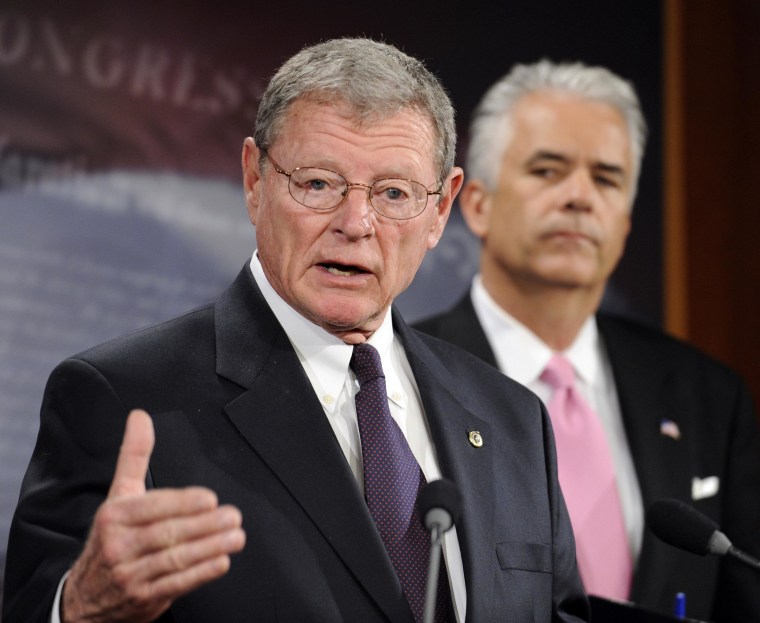President Joe Biden is well aware of the fact that the nuclear threat posed by Iran has become far more serious in recent years, which is why the U.S. administration is exploring ways to restore the 2015 international nuclear agreement his predecessor abandoned.
As Matt Stieb explained, those efforts are moving forward this week.
On Wednesday, State Department spokesperson Ned Price told reporters that the U.S. is prepared to "take the steps necessary to return to compliance" with the deal, known formally as the Joint Comprehensive Plan of Action. Though Price said he is "not in a position here to give you chapter and verse on what those might be," those measures will include "lifting sanctions that are inconsistent with" the stipulations of the Iran Deal secured by Barack Obama.
The report added that each of the international partners involved in crafting the 2015 policy are meeting in Vienna, participating in working groups tasked with figuring out "how to revoke the economic sanctions Trump re-imposed after he left the accord in 2018" and to determine "how to bring Iran back into compliance with the agreement's limits on nuclear enrichment and stockpiled enriched uranium."
Right on cue, Republicans are demanding that the White House change course. Four GOP senators -- Oklahoma's Jim Inhofe, Florida's Marco Rubio, Pennsylvania's Pat Toomey, and Indiana's Todd Young -- sent a joint letter to the president this week, opposing "any attempt to return to the failed JCPOA."
This came four days after Inhofe issued a separate statement of his own, telling Biden not to "repeat history ... by restoring that failed agreement."
The rhetoric wasn't altogether surprising. In Republican circles, it's simply an incontrovertible fact that the JCPOA did not work, so common sense dictates that there's no point in returning to a failed policy.
There is, however, an important flaw in the GOP's case against the Iran nuclear deal: the policy worked quite well.
Just yesterday, Joe Cirincione, whose expertise in international nuclear diplomacy has few rivals, wrote a piece for NBC News explaining that diplomats in Vienna have been tasked with trying to "undo the damage Donald Trump caused when he left an agreement that had effectively shrunk Iran's program, frozen it for a generation and put it under lock and camera."
Quite right. The Iran deal did exactly what it set out to do: it dramatically curtailed Tehran's nuclear ambitions and established a rigorous system of monitoring and verification. Once the agreement was in place, each of the parties agreed that the participants were holding up their end of the bargain, and Iran's nuclear program was, at the time, on indefinite hold.
And then Donald Trump took office.
One of my favorite stories about the Iran deal came a few months into Trump's term in the White House, when the then-president held a lengthy meeting with top members of his team: Secretary of State Rex Tillerson, Defense Secretary James Mattis, White House National Security Adviser H. R. McMaster, and Chairman of the Joint Chiefs of Staff General Joseph Dunford. Each of the officials told Trump the same thing: it was in the United States' interest to preserve the existing JCPOA policy.
The Republican expected his team to tell him how to get out of the international agreement, not how to stick with it. When his own foreign policy and national security advisers told him the policy was working, Trump "had a bit of a meltdown."
Soon after, he abandoned the JCPOA anyway, not because it was failing, but because Trump was indifferent to its success. The effective policy was soon replaced by a new strategy known as the "maximum pressure" campaign.
Iran almost immediately became more dangerous, not less.
Republicans can keep saying the word "failed" over and over in reference to the policy that was working just fine, but that won't make it true. The only real failure here is the policy Trump tried to implement, not the policy he tried to replace.

